/https://storage.googleapis.com/s3-autonomous-upgrade-3/production/ecm/250116/corporate-office-design-ideas.jpg)
Corporate Office Design Ideas for Modern Workspaces
Table of Contents
Corporate office design plays a crucial role in productivity, employee satisfaction, and company culture. From understanding psychological aspects to exploring the latest trends, this guide offers everything you need to design a modern, efficient corporate office.
The Psychological Aspects of Corporate Office Design
Corporate office design goes beyond aesthetics; it profoundly impacts employee psychology, influencing productivity, creativity, and overall well-being. The design of a workspace can either stimulate motivation or contribute to stress and fatigue. Understanding the psychological aspects of corporate office design is essential for creating an environment where employees feel engaged, valued, and motivated to perform at their best.
The Role of Color in Office Design
Colors play a significant role in shaping mood and behavior. Bright, vibrant colors like yellow and orange are known to stimulate creativity and energy, making them ideal for collaborative spaces. In contrast, cooler tones such as blue and green promote calmness and focus, which are beneficial in areas where concentration is key. Balancing these colors throughout the office can create a dynamic yet harmonious environment.
Lighting and Its Impact on Well-being
Lighting is another critical element that affects employee well-being. Natural light is the most beneficial, as it boosts mood, energy levels, and productivity. In offices where natural light is limited, using daylight-mimicking LED lights can help replicate its benefits. On the other hand, harsh fluorescent lighting can cause eye strain and headaches, leading to decreased productivity.
>>> Soft Light vs. Warm Light
>>> White Light vs. Yellow Light
The Importance of Space and Layout
The layout of an office significantly impacts how employees interact and collaborate. Open spaces encourage communication and teamwork, while private areas are necessary for focused, individual work. The right balance between open and private spaces can foster a productive work environment where employees feel comfortable choosing the setting that best suits their tasks.
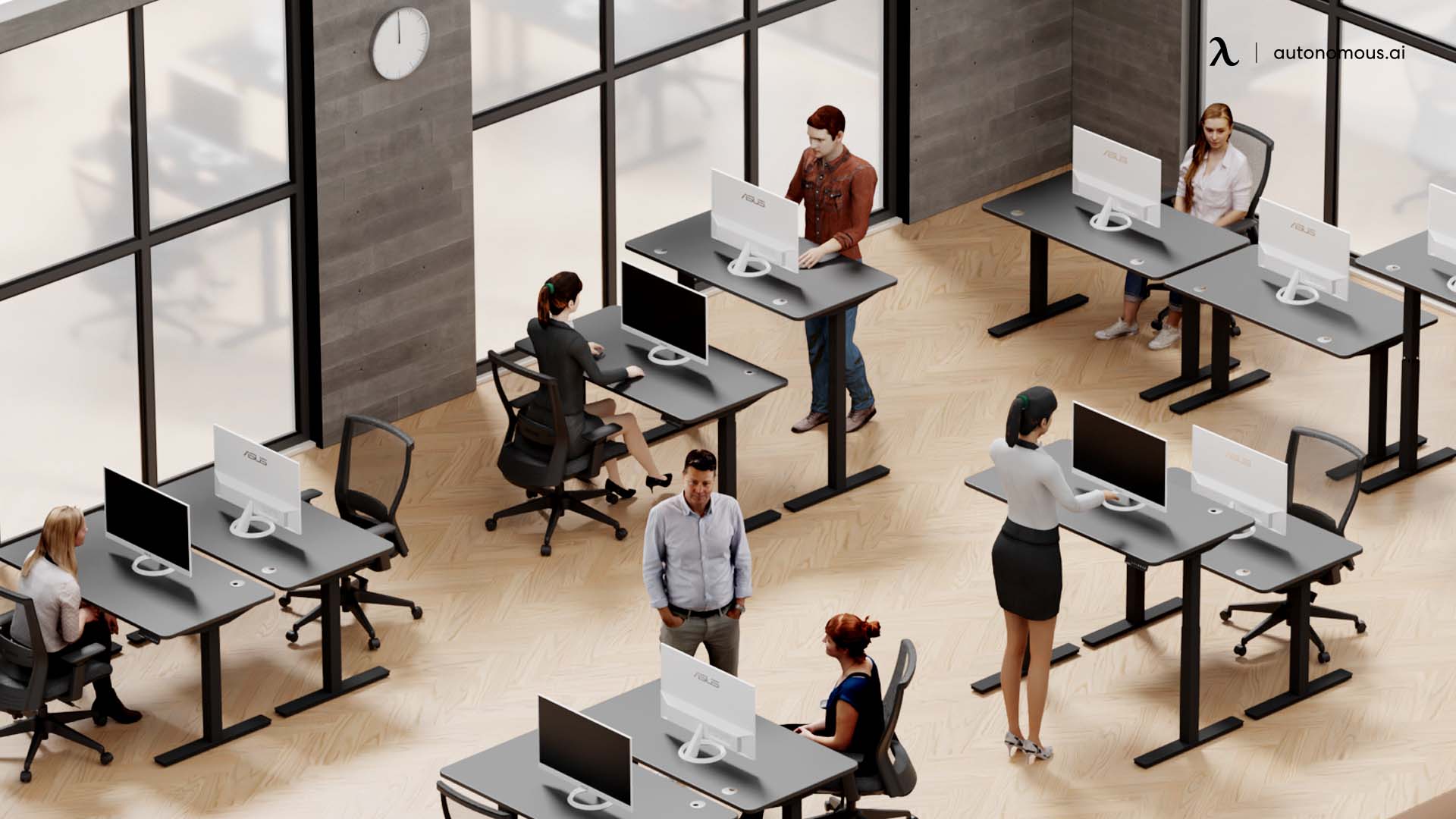
Incorporating Nature for Mental Health
Biophilic design, which involves incorporating natural elements into the office, has been shown to reduce stress and improve overall well-being. This can be achieved by adding plants, water features, or natural materials like wood and stone. A workspace that connects employees with nature can enhance their mood and cognitive function, leading to higher productivity.
Corporate office design has undergone significant transformations over the past few decades, evolving in response to changing work cultures, technological advancements, and new understandings of employee needs. Understanding the evolution helps us appreciate the current trends and predict future directions in office design.
Elements of Corporate Office Design
Effective corporate office design is a careful balance of various elements that contribute to a functional, aesthetically pleasing, and productive workspace. These elements include layout, interior design for corporate office, lighting, acoustics, and technology. For those considering a minimalist approach, a minimalist office design can enhance focus and reduce distractions.
Furniture and Ergonomics
Furniture plays a crucial role in employee comfort and productivity. Ergonomically designed furniture, such as adjustable chairs and desks, helps prevent physical strain and injuries. A mesh chair, for example, provides breathability and support, making it ideal for long hours of work.
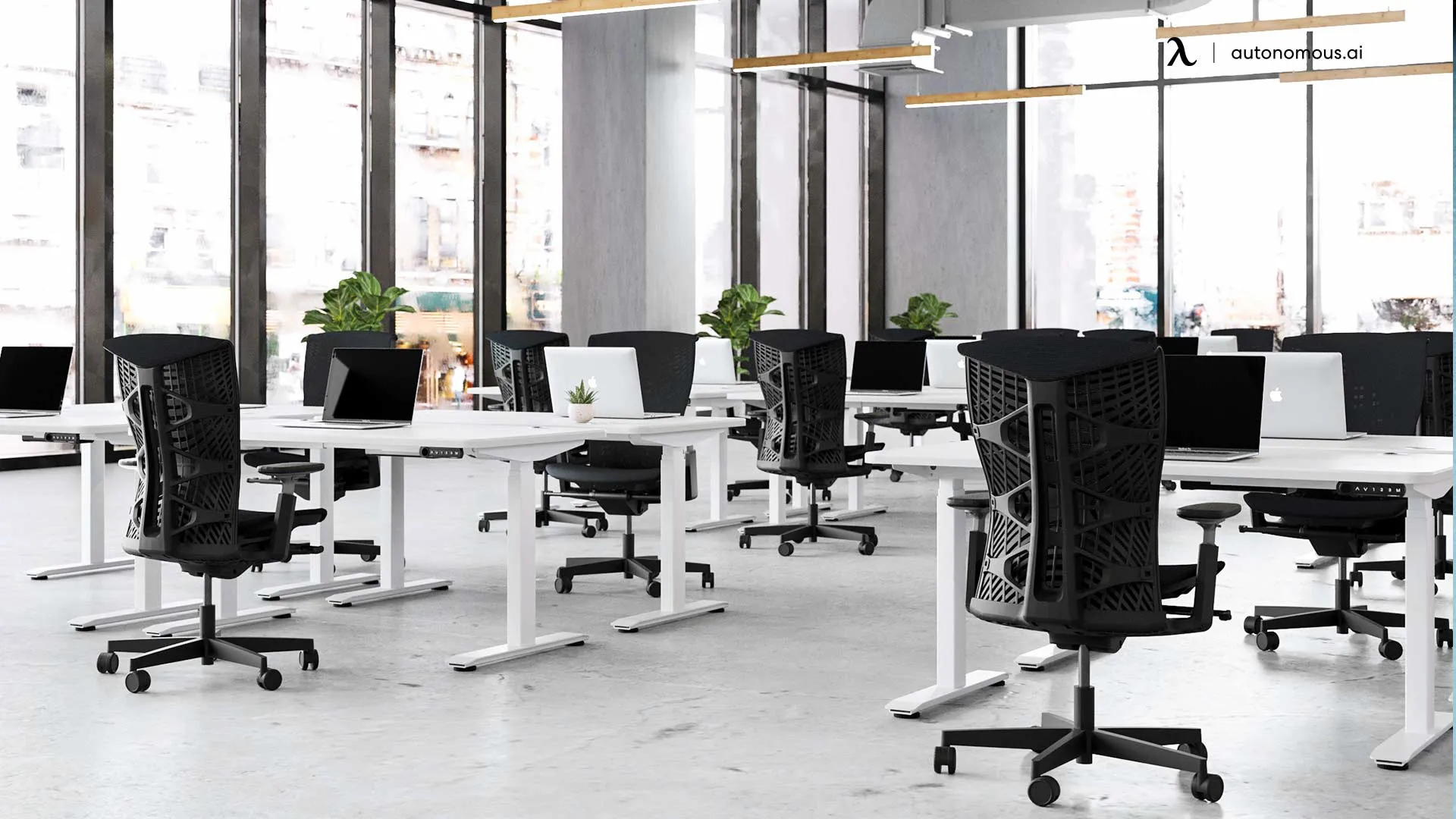
Technology Integration
Modern corporate offices must seamlessly integrate technology to support efficient work processes. This includes everything from high-speed internet and wireless connectivity to conference cameras and smart boards. Additionally, cable management solutions are essential to keep the workspace tidy and free from clutter.
Trends in Corporate Office Design
Corporate office design trends continue to evolve, reflecting changes in work culture, technology, and societal values. Staying updated on these trends can help companies create workspaces that are not only modern but also aligned with the needs of their employees.
1. Hybrid Workspaces
With the rise of remote work, hybrid workspaces have become increasingly popular. These offices are designed to support both in-person and remote employees, featuring areas for collaboration as well as technology-enabled meeting rooms for virtual communication. Flexibility is key, with spaces that can be easily adapted to different work modes.
2. Biophilic Design
Biophilic office design, which emphasizes the connection between humans and nature, continues to gain traction. This trend involves incorporating natural elements like plants, natural light, and organic materials into the office environment. Biophilic design not only enhances the aesthetic appeal of the office but also promotes employee well-being.
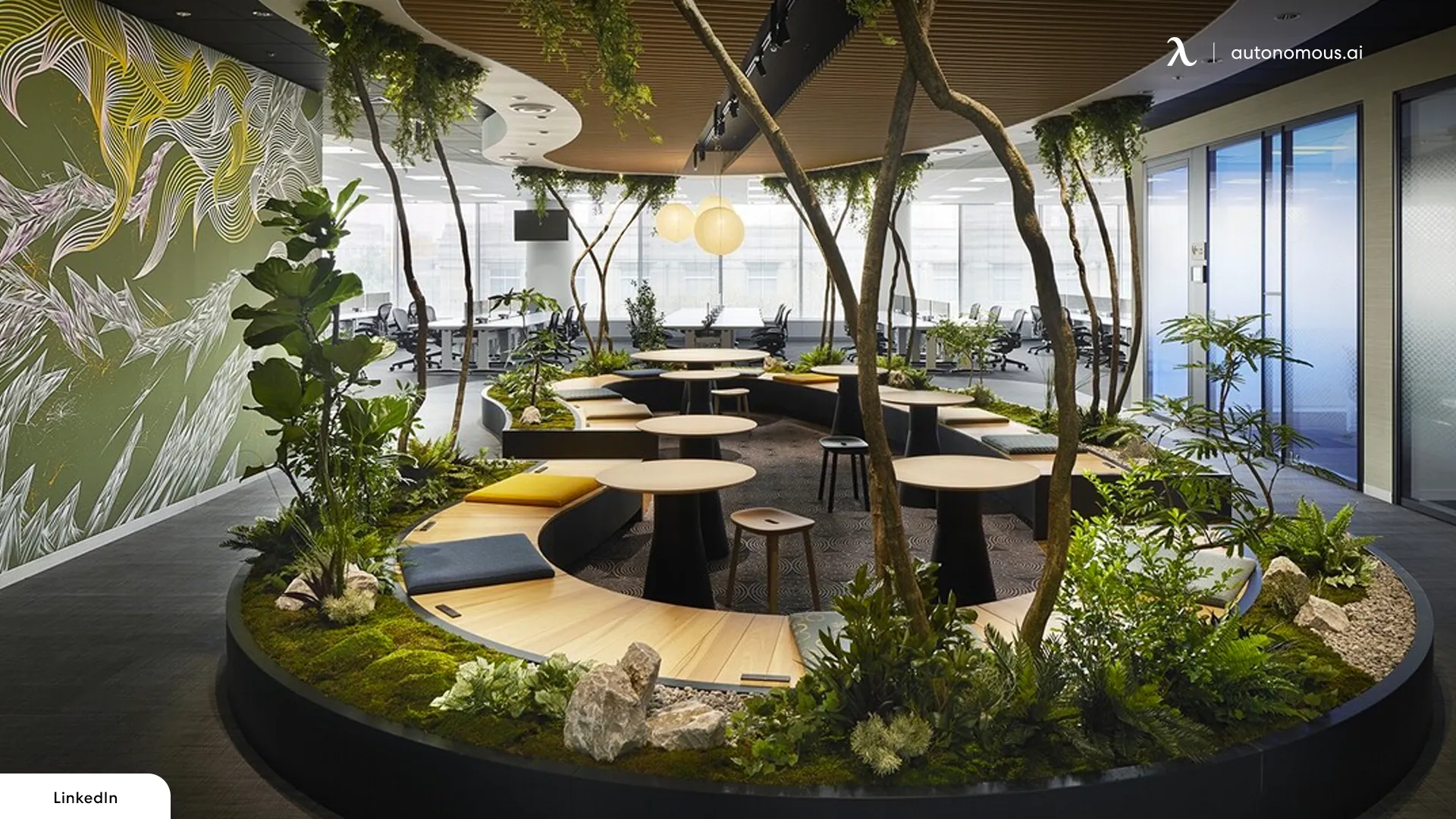
3. Sustainable and Eco-Friendly Design
Sustainability is no longer just a buzzword; it's a key consideration in modern office design. Companies are increasingly opting for sustainable materials, energy-efficient systems, and eco-friendly practices. This sustainable office design trend reflects a broader commitment to corporate social responsibility and the environment.
4. Resimercial Design
Resimercial design, a blend of residential and commercial office design, aims to make offices feel more like home. This trend includes the use of comfortable interior design for corporate office, warm colors, and soft lighting to create a cozy, inviting atmosphere. The goal is to make the office a place where employees feel relaxed and comfortable, promoting productivity and creativity.
5. Inclusive and Accessible Design
As companies strive to create more inclusive workplaces, accessible design has become a key trend. This includes designing spaces that are accessible to people with disabilities, such as ramps, wide doorways, and adjustable furniture. Inclusive design also considers the diverse needs of employees, creating spaces that accommodate different work styles and preferences. For inspiration on incorporating these elements, you can explore ideas from modern industrial office design, which often integrate natural materials into contemporary settings.
Common Corporate Office Design Ideas
Creating a corporate office that is both functional and inspiring requires thoughtful planning and creativity. Here are several corporate office design ideas to help you transform your workspace into a place where employees thrive.
1. Open Collaboration Areas
Open collaboration areas are essential for fostering teamwork and innovation. These spaces should be designed to encourage spontaneous discussions and idea-sharing. Consider using communal tables, whiteboards, and comfortable seating to create a dynamic, collaborative environment. For a comprehensive guide on creating such spaces, check out open office design ideas.
2. Private Focus Zones
While open spaces are great for collaboration, private focus zones are equally important for tasks that require concentration. These zones can be created using soundproof pods, quiet rooms, or even designated areas with partitions. The key is to provide employees with a variety of spaces that cater to different work needs.
3. Flexible Workstations
Flexibility is key in modern corporate office design. Flexible workstations, such as minimalist desks and adjustable chairs, allow employees to customize their workspace according to their preferences. Consider incorporating standing desks, modular furniture, and mobile workstations that can be easily reconfigured to suit different tasks.
4. Wellness Rooms
Wellness rooms provide employees with a space to relax, meditate, or practice yoga during breaks. These rooms should be designed with comfort in mind, featuring soft lighting, calming colors, and comfortable seating. Wellness rooms can help reduce stress and improve overall employee well-being.
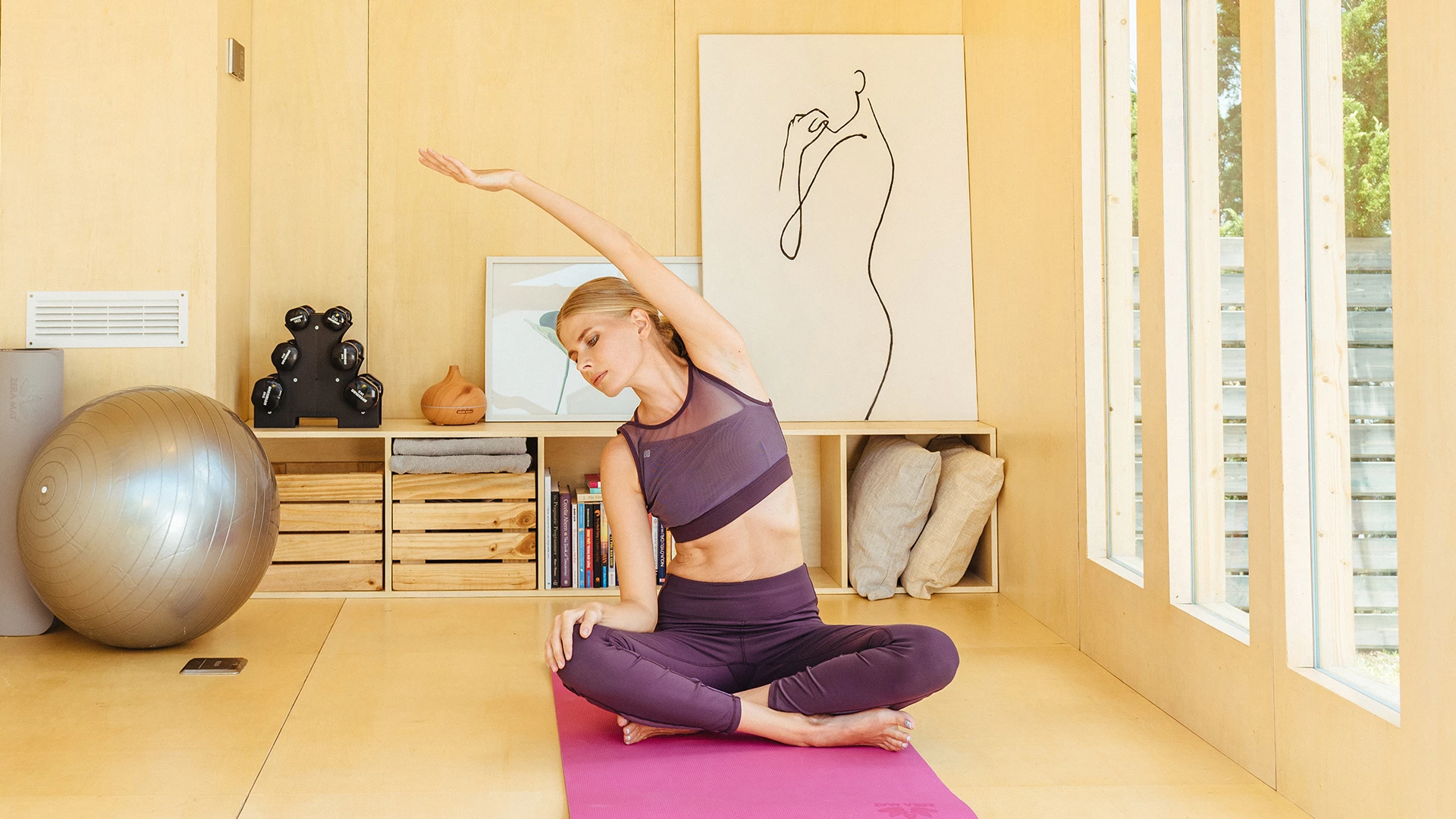
5. Branded Spaces
How to decorate a corporate office? Reflect your company's brand and culture through the office design. This can be done by incorporating corporate colors, logos, and mission statements into the corporate office decor ideas. Branded spaces create a cohesive look and instill a sense of pride among employees, reinforcing the company's identity. Such design elements can transform the office into a space that visually communicates the company's values and ethos. To learn more about how branding can influence design, explore examples from leading office design companies.
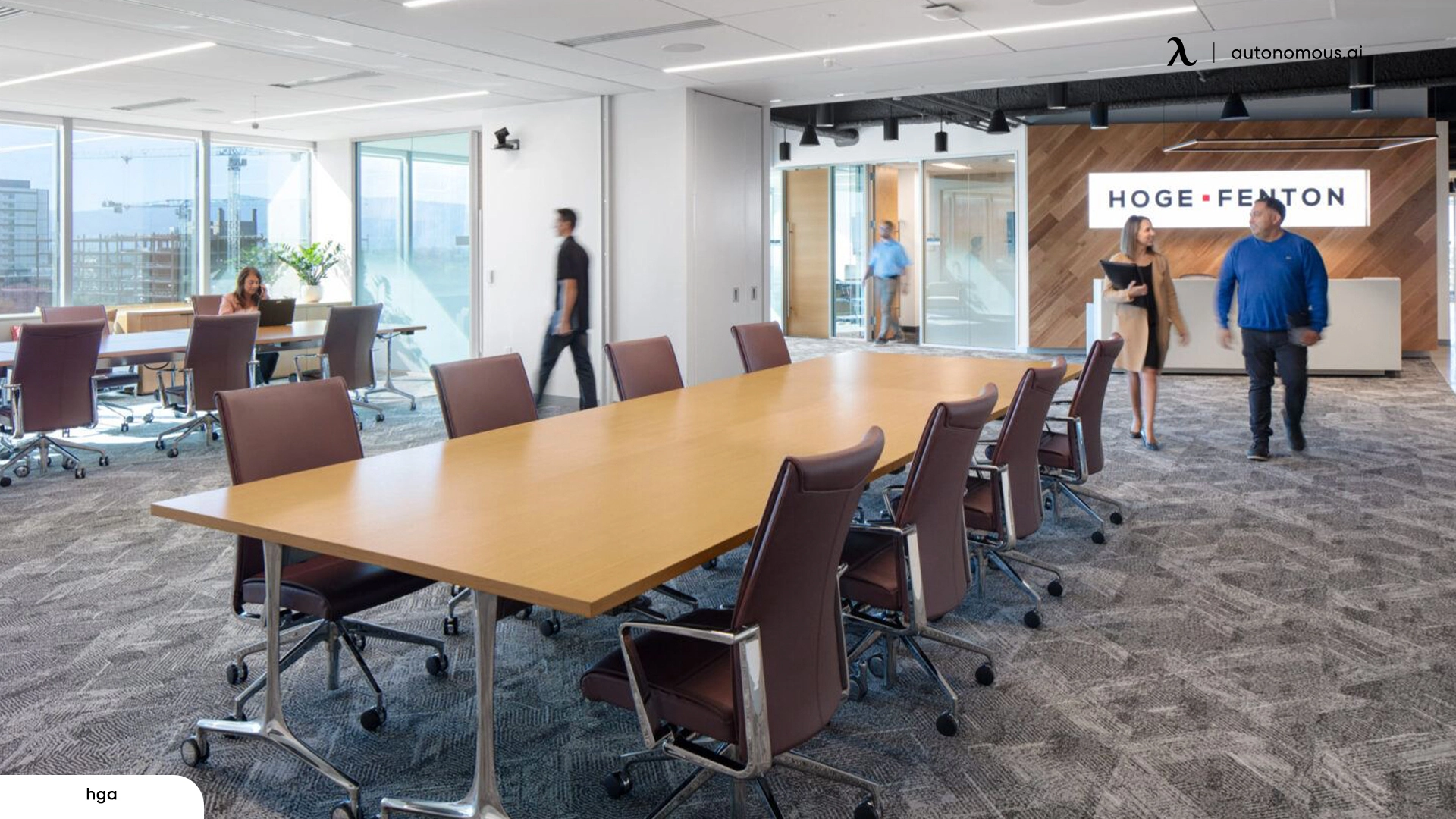
6. Acoustic Solutions
Noise can be a major distraction in open-plan offices. Incorporate acoustic solutions such as soundproof panels, carpets, and curtains to manage noise levels. Private meeting rooms should also be soundproofed to ensure confidentiality and focus during discussions.
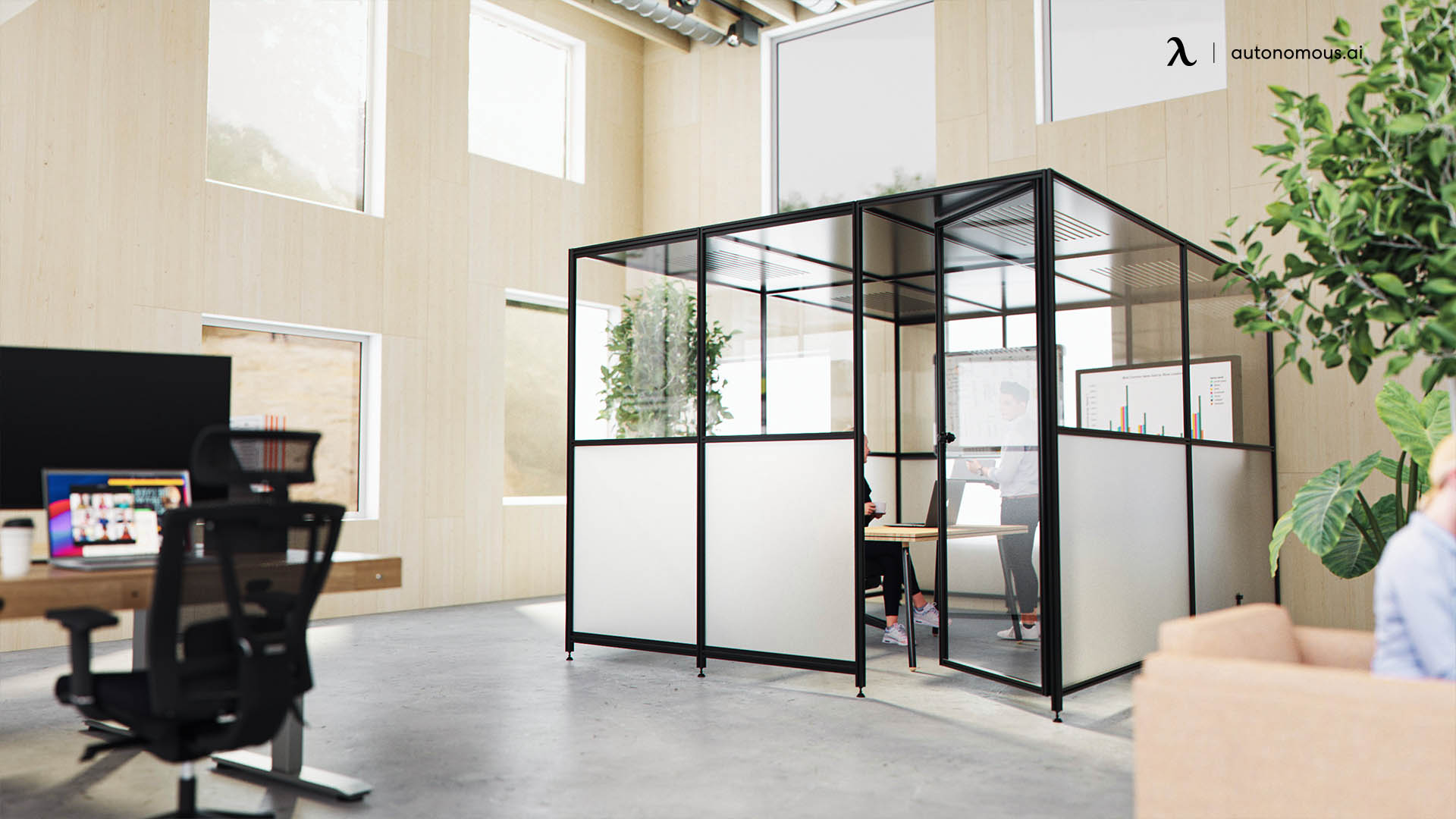
7. Multi-Purpose Spaces
Design multi-purpose spaces that can be used for a variety of activities, from meetings and presentations to social events and workshops. These spaces should be equipped with flexible interior design for corporate office that can be easily reconfigured to suit different needs. Multi-purpose spaces add versatility to the office and maximize the use of available space.
8. Personalization and Comfort
Allowing employees to personalize their workspaces can increase their sense of ownership and satisfaction. This can be achieved by offering customizable storage options, like a small desk with drawers, or by providing bulletin boards for personal items. Additionally, providing comfortable seating options and ensuring that each workspace is tailored to the individual’s needs can make a significant difference in employee happiness and productivity.
9. Small Office Solutions
For companies with limited space, designing a functional and aesthetically pleasing office can be challenging. However, with the right approach, even a small executive office design can be both effective and inspiring. Use space-saving furniture, such as a small desk or small business office design, to create a workspace that feels open and uncluttered. Consider vertical storage solutions and multi-functional furniture to make the most of the available space.
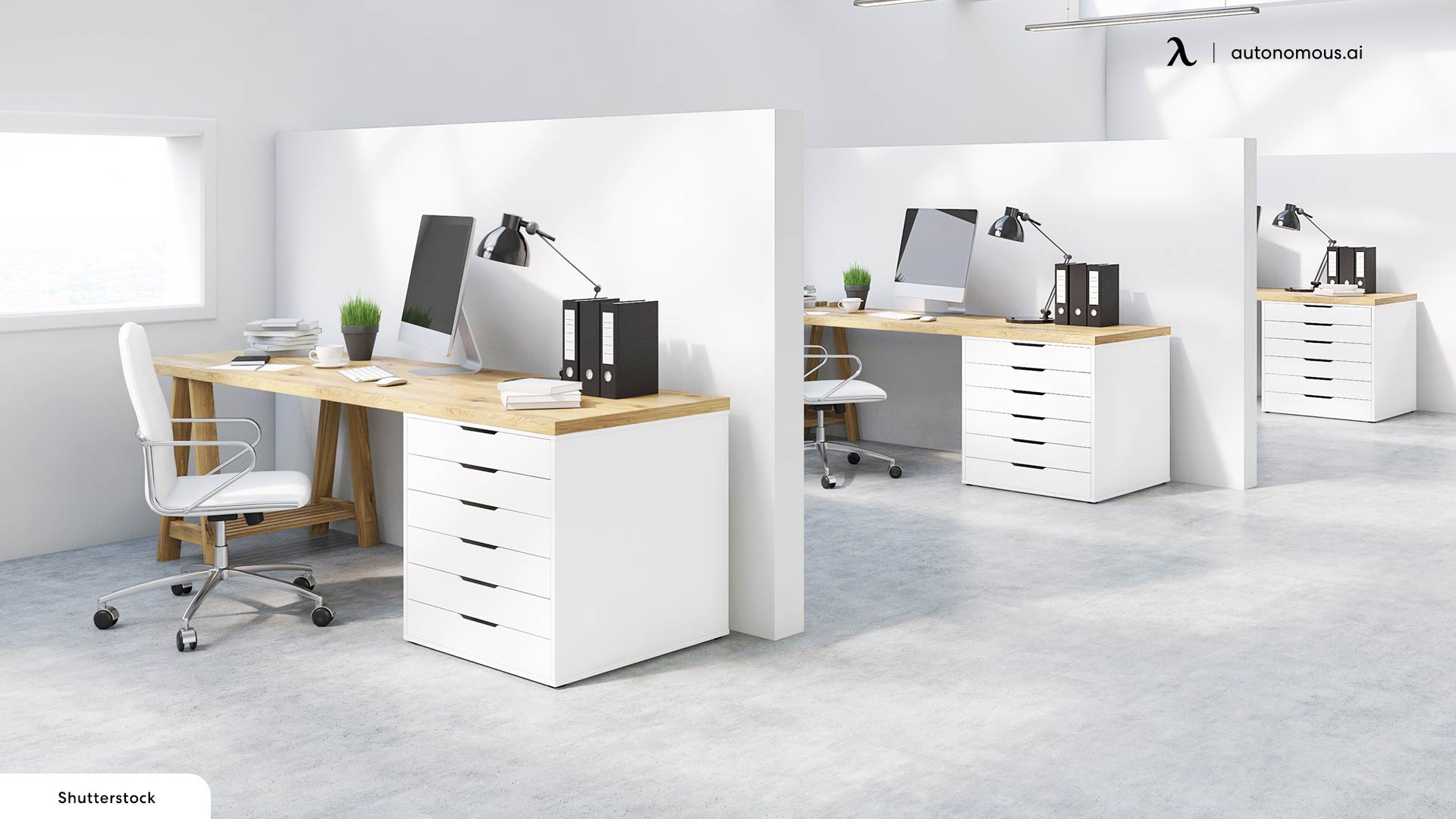
10. Integration of Classic and Modern Design Elements
Blending classic and modern corporate office design elements can create a unique and timeless office aesthetic. Consider combining sleek, modern furniture with traditional wood finishes or using contemporary art alongside classic architectural features. A modern classic office design can appeal to a wide range of tastes, creating a sophisticated yet welcoming environment that reflects both tradition and innovation.
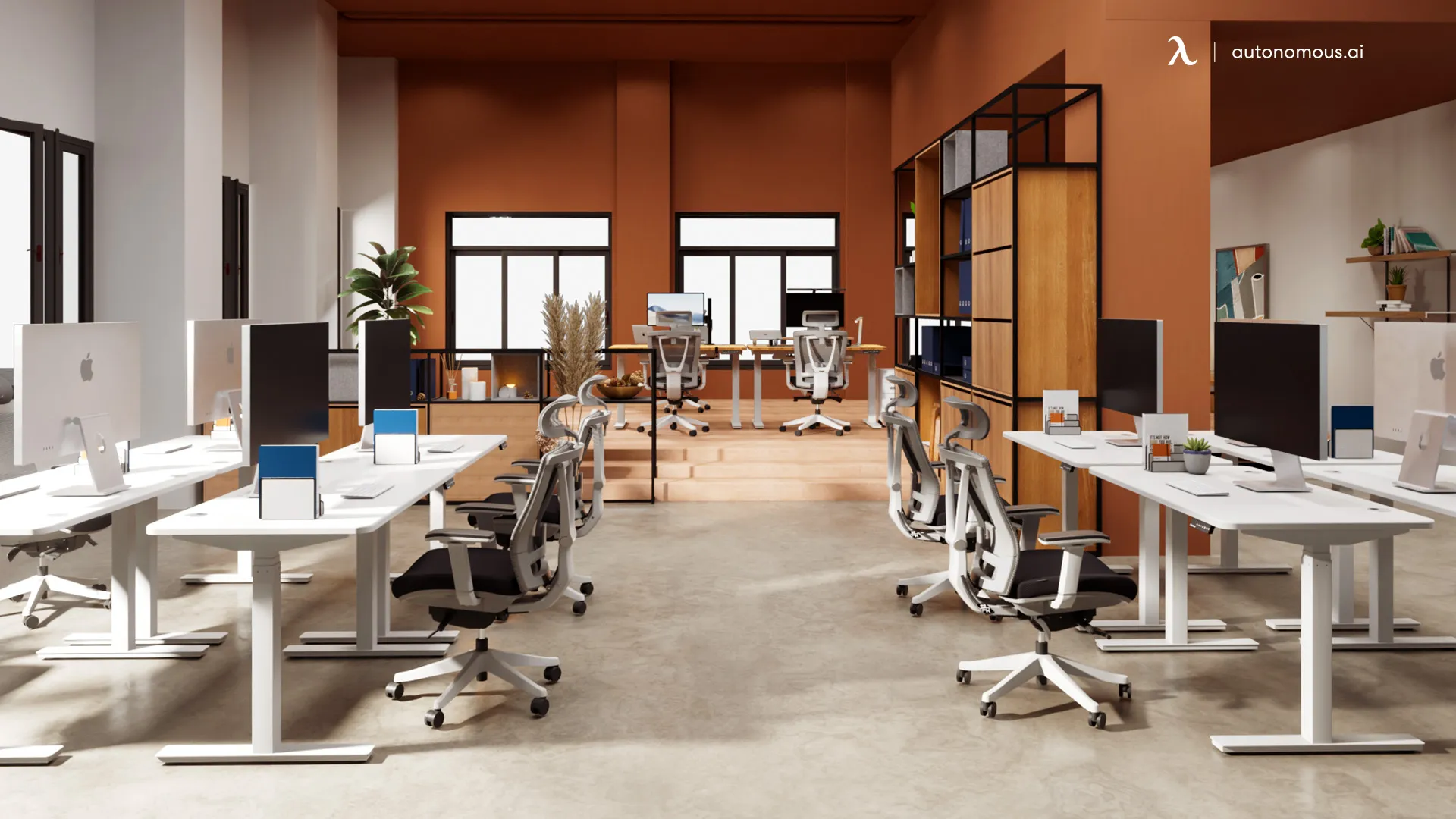
Ergonomics in Corporate Office Design
Ergonomics is a critical aspect of corporate office design, as it directly impacts employee health, comfort, and productivity. By designing an office that supports good posture and reduces physical strain, companies can create a safer and more comfortable work environment. Ergonomics focuses on designing workspaces that fit the needs of the user, rather than forcing the user to adapt to the workspace. Poor ergonomics can lead to a range of health issues, including back pain, neck strain, and repetitive stress injuries. These issues not only affect employee well-being but also lead to decreased productivity and increased absenteeism.
Ergonomic Furniture
Ergonomic furniture is designed to support the body in a natural position, reducing the risk of strain and injury. Standing desks, for example, allow employees to alternate between sitting and standing throughout the day, reducing the negative effects of prolonged sitting. Similarly, an office chair with adjustable height, lumbar support, and armrests can significantly improve comfort during long working hours.
Movement and Flexibility
Encouraging movement throughout the day is essential for preventing the physical strain associated with prolonged sitting. Consider incorporating sit-stand desks, adjustable workstations, and areas where employees can take short walks or stretch. Flexibility in workstation design allows employees to choose the setup that best suits their comfort and productivity needs.
Conclusion
Corporate office design plays a vital role in shaping the work environment and influencing employee satisfaction, productivity, and overall well-being. From understanding the psychological aspects of design to exploring the latest trends and implementing ergonomic solutions, creating an effective office space requires thoughtful planning and creativity. Whether you're designing a new office or updating an existing one, these insights and ideas can help you create a workspace that supports your employees' needs and reflects your company's values.
Ready to enhance your corporate office? Explore our range of modern interior design for corporate office and discover the perfect pieces to transform your workspace into a place where creativity, collaboration, and productivity thrive.
Restez connecté avec nous !
Abonnez-vous à nos mises à jour hebdomadaires pour rester au courant de nos dernières innovations et de l'actualité de la communauté !

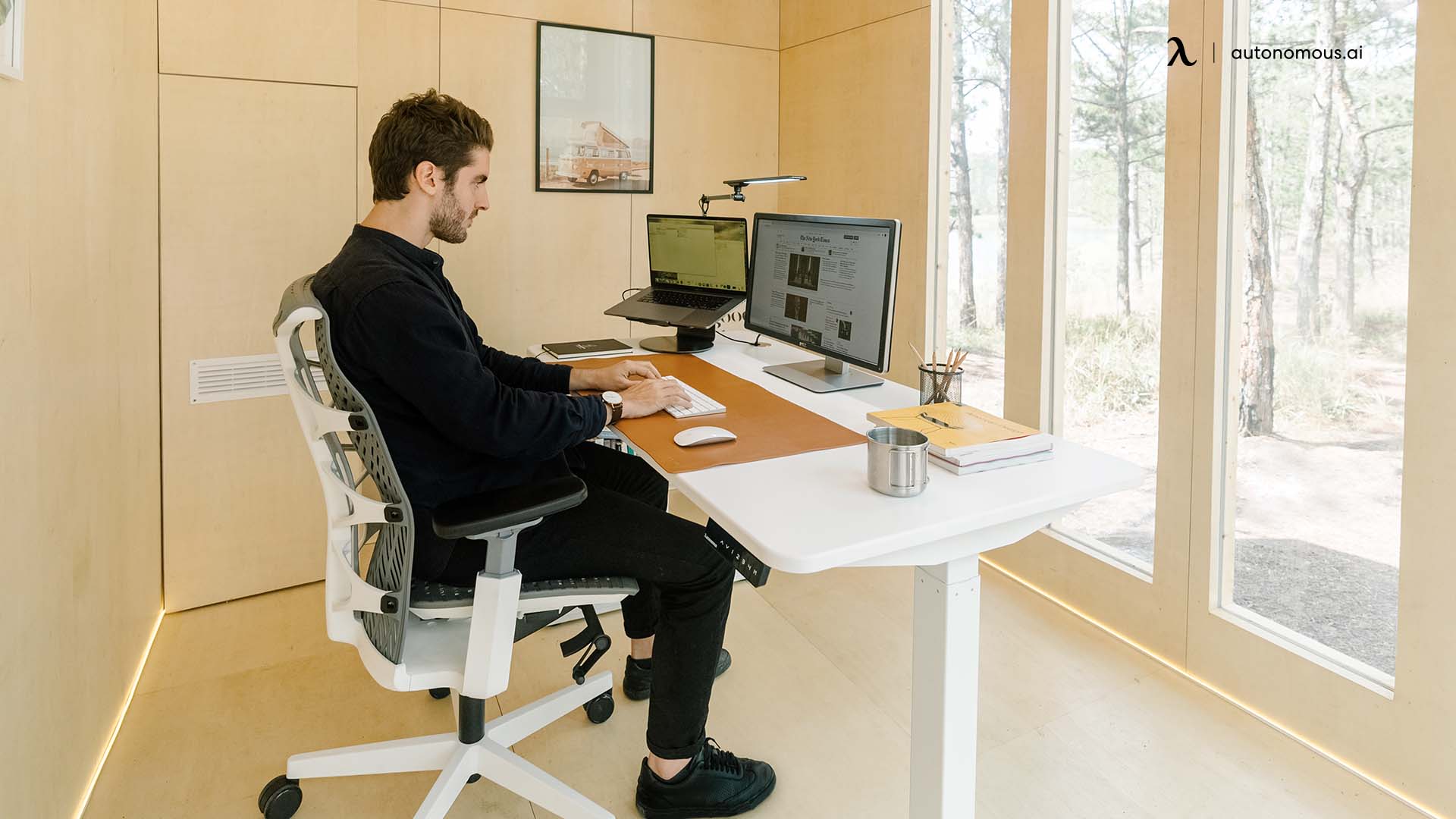

.jpg)
.png)
/https://storage.googleapis.com/s3-autonomous-upgrade-3/production/ecm/240605/photo_2024-06-05_15-57-23.jpg)
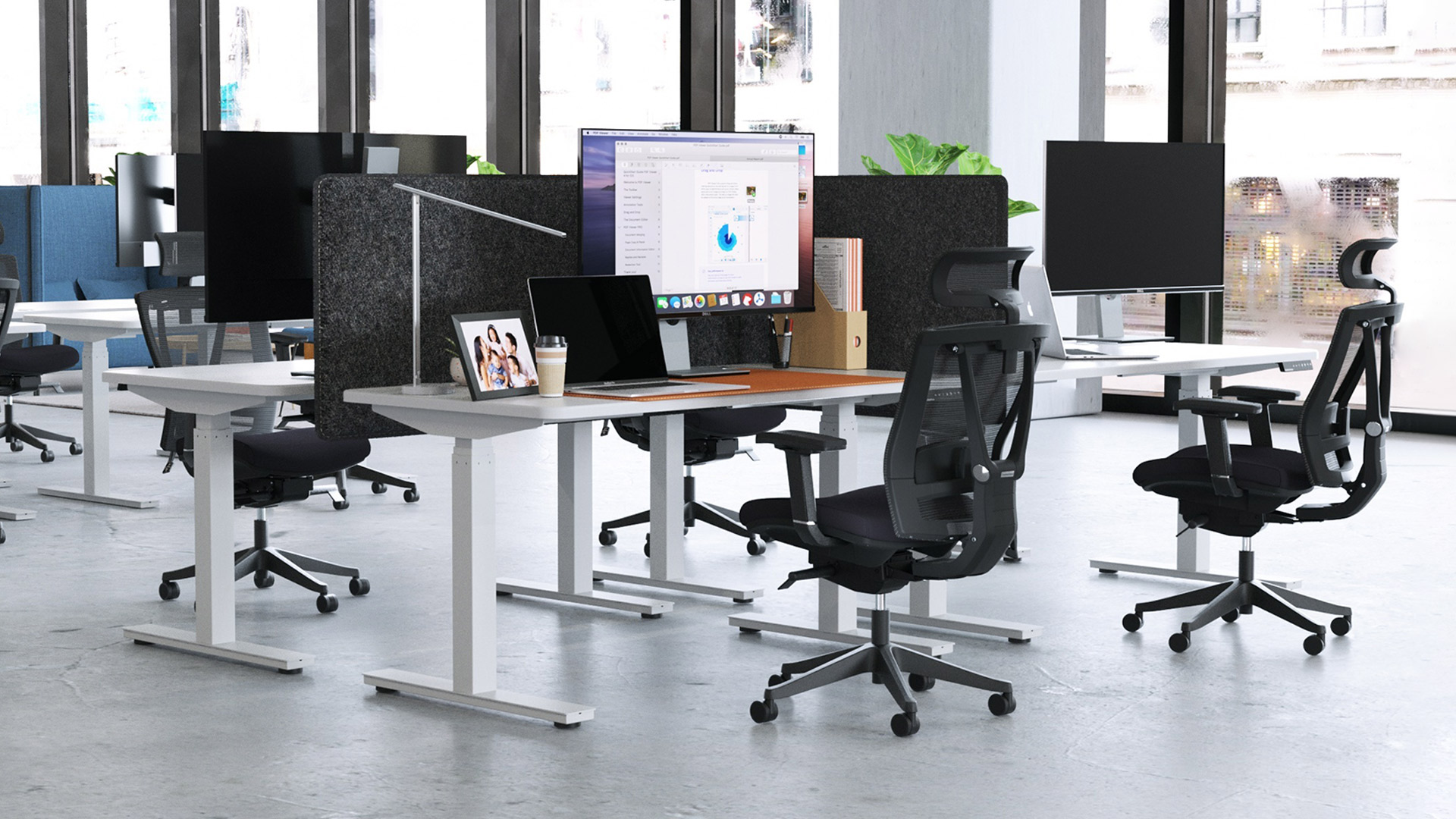
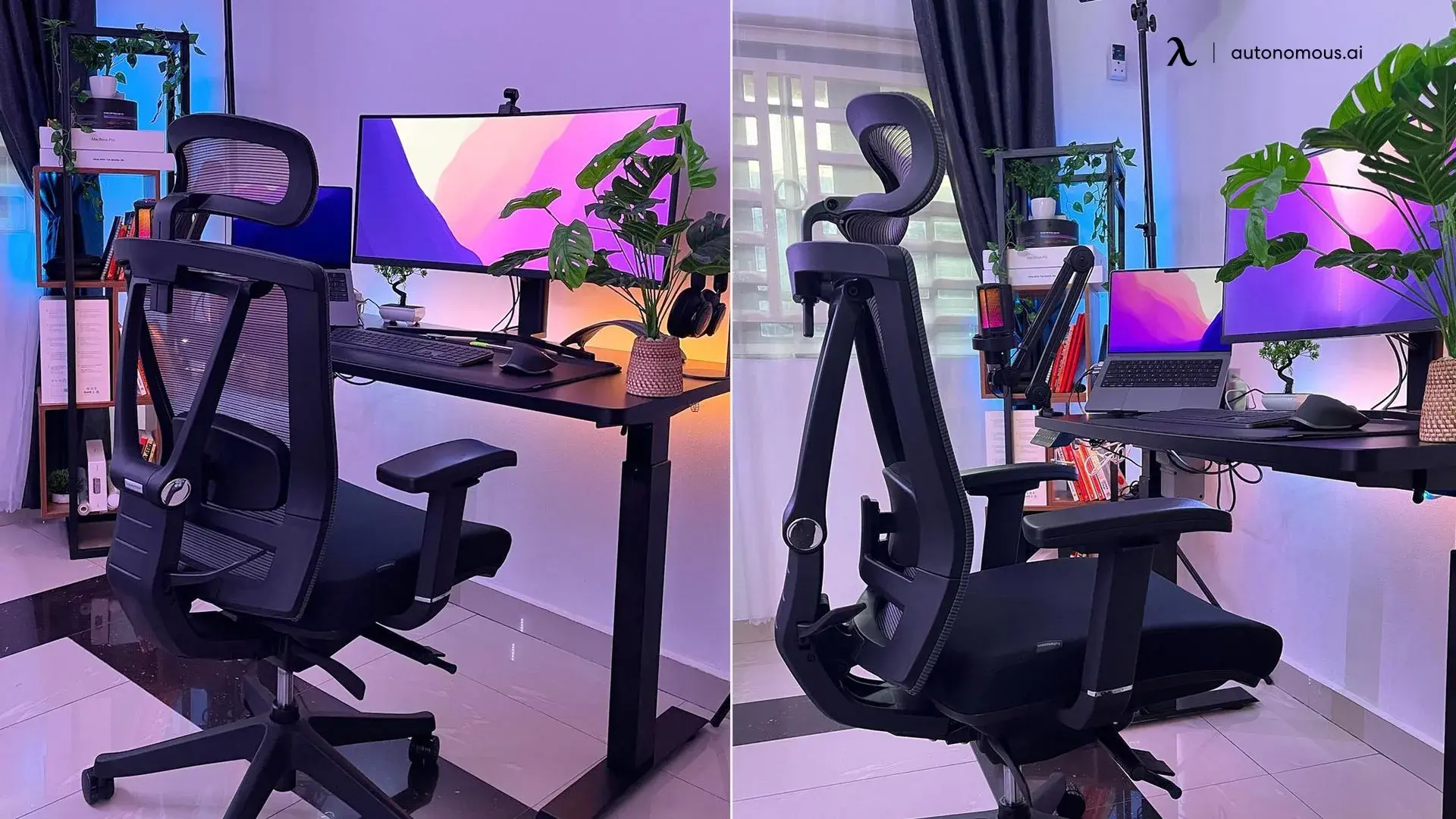
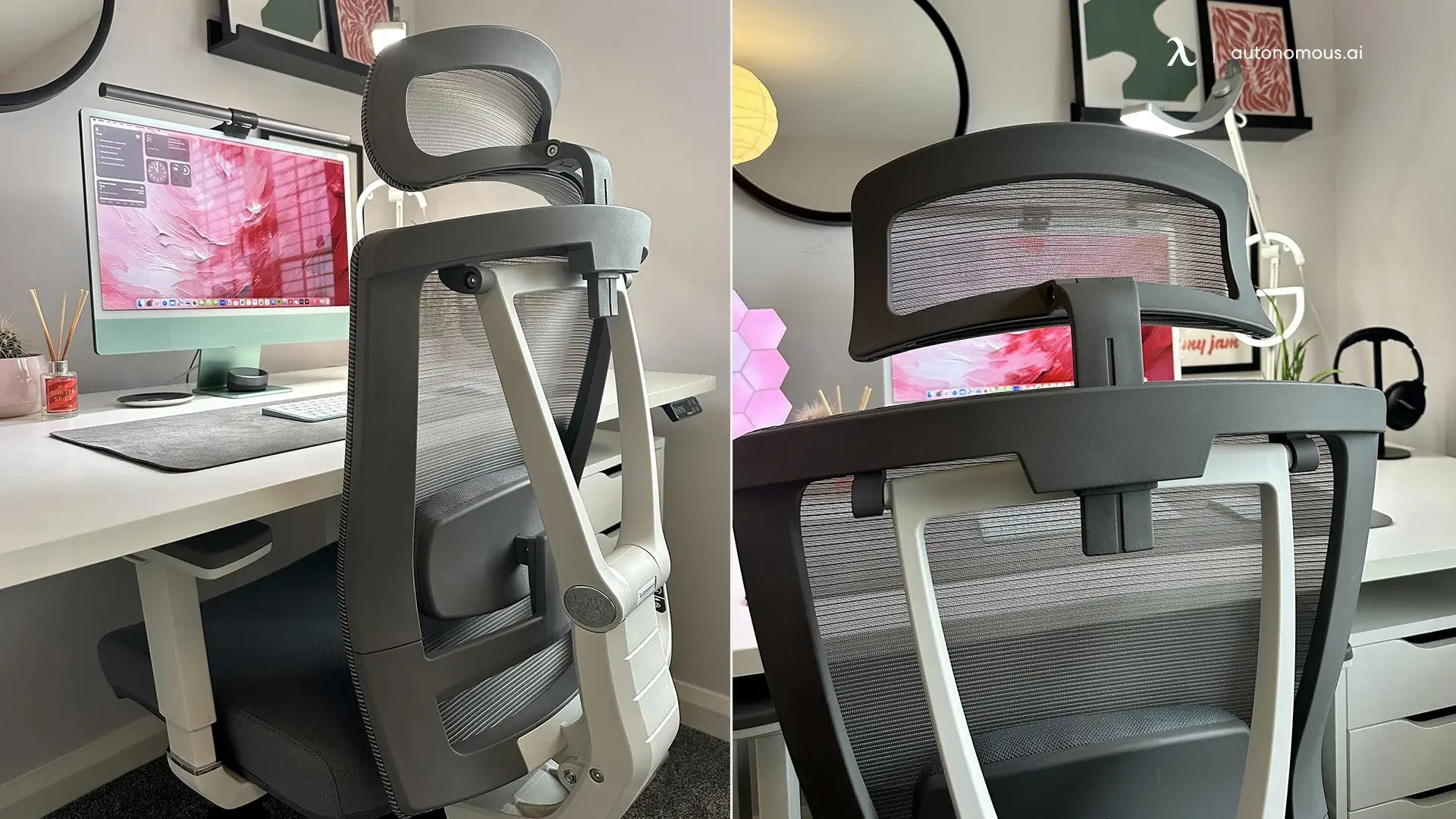
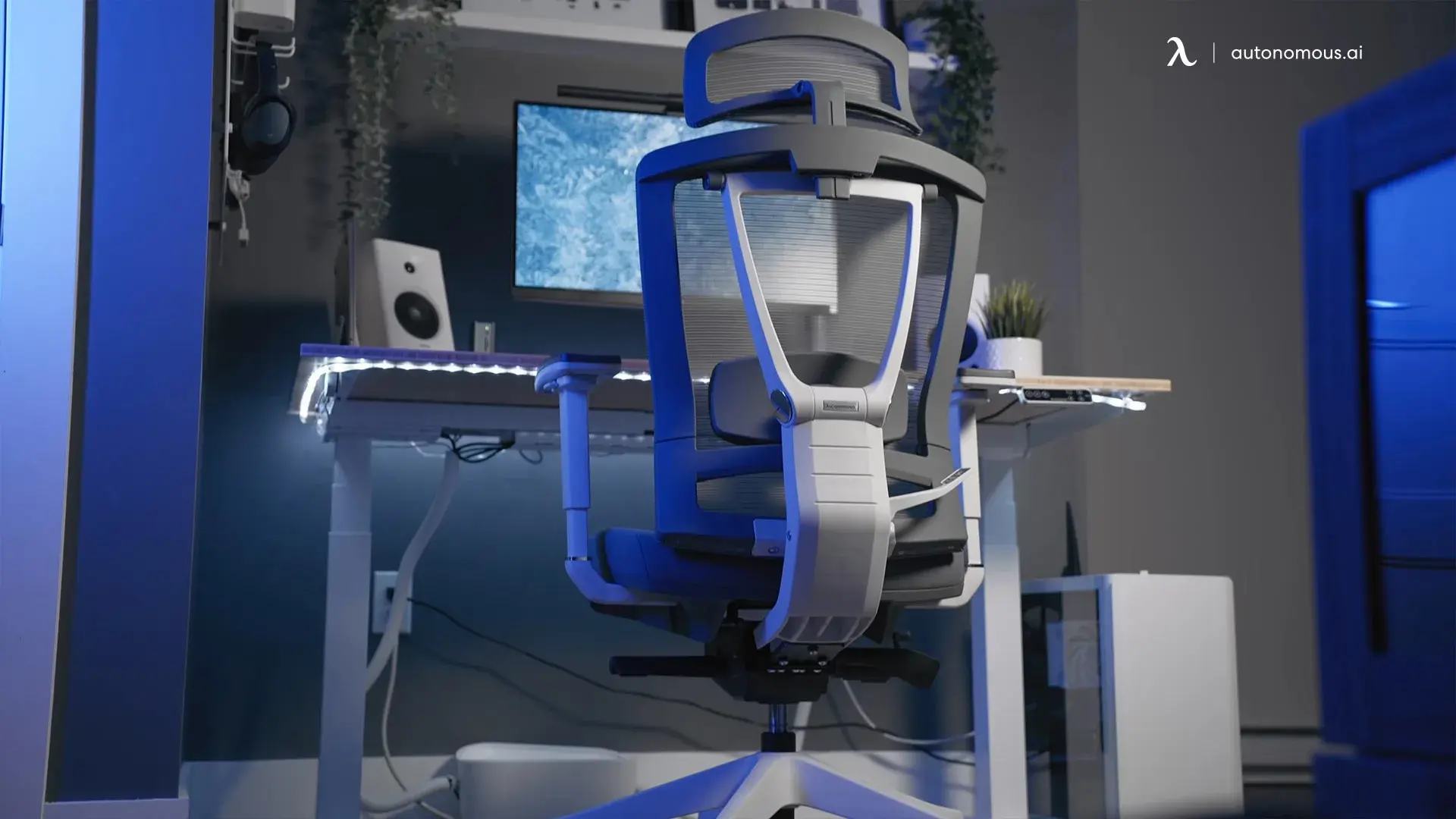

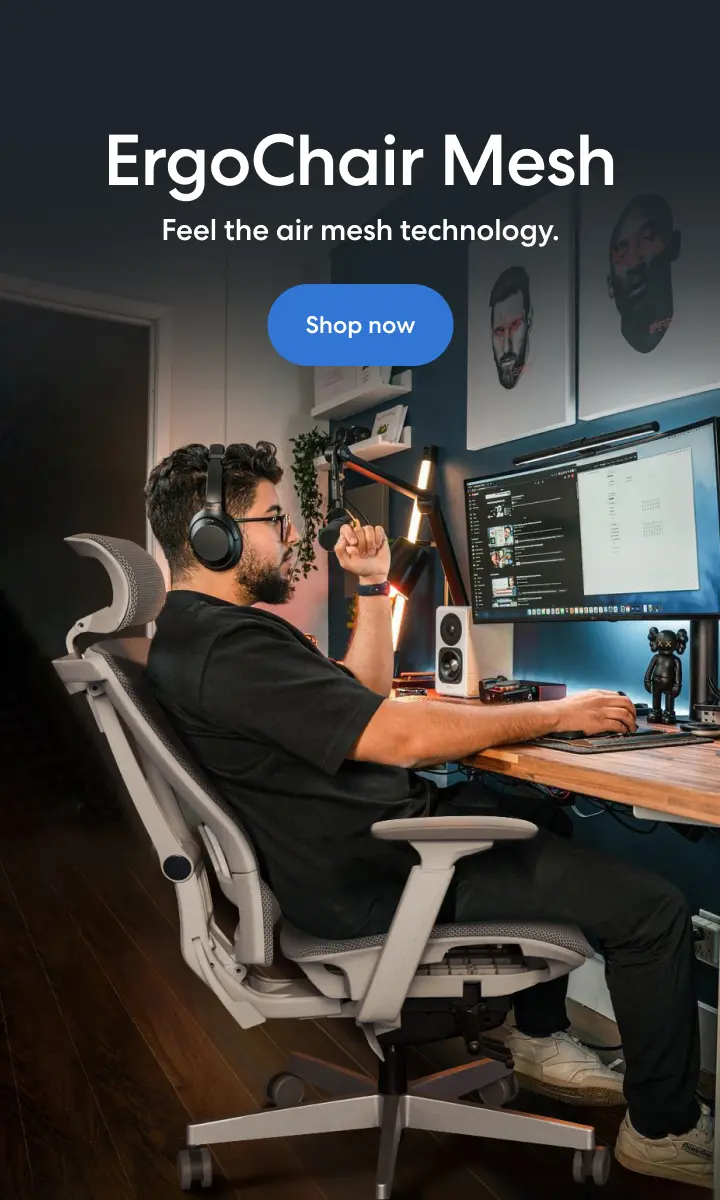
/https://storage.googleapis.com/s3-autonomous-upgrade-3/production/ecm/230914/bulk-order-sep-2023-720x1200-CTA-min.jpg)

/https://storage.googleapis.com/s3-autonomous-upgrade-3/production/ecm/230824/EthanJohnson-ffebe8b4-4650-46f9-a3b3-ed980acaad86.jpg)